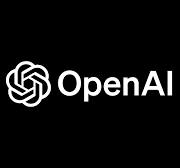OpenAI’s New “Operator” AI Agents Could Revolutionize Computer Task Management
OpenAI, known for its advanced AI models like GPT-4, is reportedly working on a new project that could redefine how we interact with computers. According to sources, OpenAI is developing intelligent “AI agents” named “Operator,” designed to handle a variety of computer tasks autonomously. This technology could empower AI to perform complex operations on behalf of users, from sending emails and scheduling meetings to analyzing data and managing other productivity-related tasks.
What Are OpenAI’s “Operator” AI Agents?
OpenAI’s “Operator” agents are anticipated to function as virtual assistants that can independently execute tasks within a digital environment. They are designed to bridge the gap between human intention and computer functionality, enabling the automation of repetitive and complex workflows. Although the full scope of Operator’s capabilities is yet to be unveiled, these agents are expected to carry out actions based on user prompts, learning and adapting to users’ specific preferences over time.
The emergence of such technology could shift the landscape of computer interactions, particularly for professionals in need of efficient task management. Imagine a scenario where your AI agent can control software applications, handle basic system commands, and even perform research tasks across various platforms—all without requiring direct input. This hands-off approach would not only save time but also streamline workflows, freeing up users to focus on higher-level responsibilities.
Potential Applications of “Operator” AI Agents
The potential uses for OpenAI’s “Operator” agents are vast and varied. Some possible applications include:
- Office and Administrative Automation: These AI agents could schedule meetings, send emails, and manage calendars automatically, making them invaluable for executives, administrators, and busy professionals.
- Data Analysis: Operator agents may assist with gathering and analyzing data, generating reports, or even flagging important insights in datasets, benefiting industries like finance, research, and marketing.
- Creative Collaboration: Content creators could rely on these agents for tasks like organizing files, editing drafts, and brainstorming, transforming creative processes across fields.
- Customer Support and Engagement: With the ability to handle basic customer queries or sort through support requests, Operator agents could reduce the workload for customer support teams, allowing human agents to focus on complex cases.
- Research and Information Retrieval: Instead of manually navigating through research material or industry-specific data, users could direct Operator agents to pull relevant information, ensuring a more targeted and efficient information-gathering process.
The Tech Behind the Innovation
OpenAI has been investing heavily in developing next-generation AI models capable of understanding and performing tasks with minimal human intervention. The potential integration of these capabilities with OpenAI’s existing models could mean that Operator AI agents will benefit from powerful natural language processing (NLP) technology. This enables the agents to interpret complex instructions, manage contextual information, and learn from previous interactions, making each session more intuitive and effective.
Additionally, OpenAI’s expertise in reinforcement learning and neural networks could make these agents smarter over time, tailoring their actions according to users’ feedback. With the Operator agents likely being part of OpenAI’s broader AI ecosystem, they may have access to shared data and task execution knowledge, creating a vast network of highly skilled virtual assistants.
Security and Ethical Considerations
Introducing AI agents capable of controlling digital environments raises valid concerns around privacy and security. OpenAI will need to prioritize strict security protocols, as well as permissions and user controls, to ensure these agents act in the best interests of users. Moreover, ethical guidelines will be crucial in maintaining transparency around data use, safeguarding sensitive information, and preventing misuse.
Furthermore, if these AI agents are accessible to the general public, OpenAI may also implement limitations on actions that require high-security clearance, such as financial transactions or system modifications. Establishing clear boundaries on these agents’ capabilities will be essential to ensuring safe and reliable usage.
Future Impact and Accessibility
The potential rollout of Operator AI agents could redefine everyday productivity tools for both individuals and businesses. It is unclear whether OpenAI intends to make Operator agents available to the public or restrict them to enterprise customers. If broadly accessible, these AI agents could impact sectors from education to healthcare, assisting professionals in achieving unprecedented productivity levels.
As technology continues to evolve, OpenAI’s Operator agents signify another major step forward in AI-driven automation. Should these agents become a reality, they could fundamentally transform how people approach digital work, bringing AI a step closer to fulfilling a truly autonomous role in our daily lives.

